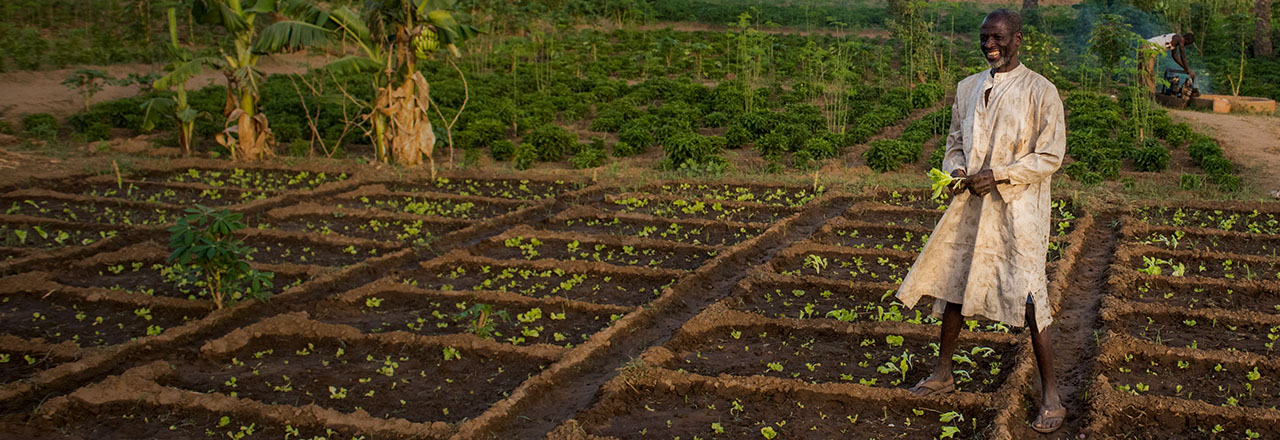

Girma: Long-term Food Security, Improved Nutrition & Resilience in Niger
Project Details
Project Locations: 553 communities across 11 communes in two departments of Zinder, Magaria and Dungass. The 11 target communes are: Dungass, Gouchi, Dogo Dogo, Malawa, Magaria, Sassoumbroum, Kwaya, Yekoua, Bande, Dantchio, and Wacha
Timeframe: October 2018 – September 2023
Partners: Government of Niger; ICRISAT (non-profit organization founded in 1972 that conducts agricultural research for development in Asia and sub-Saharan Africa); DEMI-E (NGO founded in 1998 and headquartered in Zinder); Education Development Center (EDC) (US-based, nonprofit organization); Community Development Assistance (ADC) (non-governmental organization founded in 2011 in Niger); Institute for Reproductive Health (IRH) at Georgetown University; Tufts University; and Viamo.
Project Overview
With support from the USAID’s Bureau for Humanitarian Assistance (BHA), CRS is implementing the Girma project, designed to improve and sustain food and nutrition security and resilience among extremely vulnerable and very vulnerable households and communities in Niger.
Girma means dignity, prestige, and growth in Hausa, and represents our vision of meeting individuals, households, communities, and government as equal partners in generating growth. Girma is helping communities grow with dignity and pride in what they accomplish together across sectors and activities—in livelihoods, resilience, food and nutrition security, health, inclusivity and equality, resource and conflict management, and service delivery—and across aims—building capacity, knowledge, skills, motivation, linkages, and accountability.
Key Areas of Intervention
Health and Nutrition, WASH, Agriculture/Livelihoods, Resilience and Governance, Gender and Youth, including:
- Literacy and Numeracy Training
- Leadership Building for Women, Youth, and Persons with Disabilities
- Home Gardening to Promote Nutrient-dense Foods and Care Groups to Build Knowledge and Support For Breastfeeding and Infant and Young Child Feeding
- Crop Production Improvements through SMART Skills, Climate Smart Agriculture, Market Gardening Groups, Post-Harvest Loss Prevention Technology, Processing Methods
- Maison Familiale Harmonieuse as a foundational approach for improving couple communication and joint decision-making
- Rehabilitation of community water infrastructure
- Promotion of hygiene and sanitation through both social and behavior change (SBC) and a market-based approach
- An Economic Empowerment Package for helping ultra-poor households moving out of destitution
- Savings and Internal Lending Communities (SILC)
- Employability skills training and accompaniment into employment/self-employment for youth
- Strengthening of local institutions and Disaster Risk Reduction Activities
Expected Outcomes
- Women, youth, and persons with disabilities (PWD) empowered
- Persons with disabilities, adolescent girls, and children under 5 (CU5) with sustainably improved nutritional status
- Extremely vulnerable households (VHH) and very VHH, especially women, youth, and PWD establish stable and diversified livelihoods
- Commune-level structures and community institutions empowered to sustain improvements in food and nutrition security
CRS in Niger
CRS came to Niger in 1991. Today, CRS Niger has a team of approximately 310 national staff and 10 international staff, and maintains 4 sub-offices in Agadez, Diffa, Zinder and Magaria and three smaller satellite offices in Dungass, Washa, and Sassoumbroum.
CRS Niger works nationwide with local partners to improve short and long-term access to food for vulnerable Nigeriens and provide other essential agriculture, health, microfinance, and emergency response services to the poorest of the poor. We employ an integrated approach to help the most vulnerable people lead full and productive lives and implements programs in partnership with a variety of stakeholders, including government agencies, local organizations, research institutions, international NGOs, and local Caritas partners.

